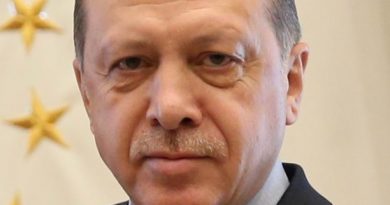The Voice of a Generation: Saint Levant and the Arab Diaspora
Yasmin Obeidallah
Managing Editor
Saint Levant has stolen the hearts of listeners in the Arab diaspora with his music that blends nostalgia and resistance, creating an authentic identity that finds its roots across the Middle East and within the hopes for a brighter, liberated future. Born in Jerusalem to a Palestinian Serbian father and a French Algerian mother, Saint Levant’s music showcases a modern twist to traditional Palestinian folk music, incorporating aspects of Arab pop, R&B, and hip-hop that reveal his multifaceted identity, seamlessly switching between Arabic, French, and English in many of his songs. The 24-year-old, whose real name is Marwan Abdelhamid, finds inspiration in both legendary Arab and Western artists, citing Lenny Kravitz, Fairuz, Cheb Khaled, and Michael Jackson as influences on his craft, according to Billboard. Saint Levant’s latest project, his album Love Letters, is an “open letter to love in all its forms,” featuring songs about longing, exile, and both romantic love and love for a homeland and its people.
Saint Levant’s soaring fame is part of the rise of the so-called “Arabizi” genre in the music scene, a term used to describe the style and sound of the emerging music from the Arab diaspora. According to Rolling Stone, this genre “bridges East and West” and reflects the “hyphenated identities” of the artists who mix cultures and languages to create a sound unique to their heritage. Suhel Nafar, the vice president at EMPIRE WANA, an independent label dedicated to developing music from the West Asia and North Africa region, says this genre allows third-culture kids to embrace their fluid identity that may not fit into a traditional box. The rise of this genre, says Nafar, is partly motivated by the political climate. When Arabs are forcibly displaced from their homes, they settle in different areas of the world that lend inspiration, along with their native roots, to the artistry of third-culture kids.
Saint Levant’s music frequently references alienation and displacement, a feeling that, he says, Palestinians know all too well, according to Rolling Stone. In some of his songs, he raps about checkpoints and the military occupation in Jerusalem and the West Bank. Abdelhamid, who was born and raised partly in Gaza, has had to balance the destruction of his home with creating new music. In his song “Deira,” named after the hotel his father built on Gaza’s shore, Saint Levant captures the joys and sorrows of the complex Palestinian identity. In an interview with NPR, he describes the destruction of Al Deira after it was bombed during Israel’s military campaign on Gaza: “Deira was bombed in November of 2023…This is the reality of being Palestinian, specifically from Gaza. You see things that you love get destroyed.” Saint Levant’s passion and identity represent the Palestinian people’s struggle for dignity and self-determination, says Paper Magazine. When he sings of soccer fields, schools, and life by the sea, he offers symbols of safety and return and reminds the world of Palestinian humanity.
Saint Levant is just one of the many young Arab artists dominating the Western music scene. Palestinian Chilean singer Elyanna is also making her mark on the mainstream, performing at Coachella in 2023 and playing alongside Coldplay at the Glastonbury Festival in 2024, says BBC. Born in Nazareth, Elyanna says that as a Palestinian artist with a platform, she can speak about where she comes from and inspire others to embrace their identity. Her emotional song, “Olive Branch,” is dedicated to the people of Palestine, its captivating lyrics and sound conveying the raw emotion and grief many diaspora Arabs feel for their people back home.
Political music is not a new phenomenon in the Middle East and North Africa; it has long been used to foster national identities and protest colonialism. Above all, music is an outlet that is used to channel anger, indignance, and hope for a country and its people into something that can be heard and felt, and serves as a reminder that nothing is simply apolitical. This shines through nearly all of Abdelhamid’s art. While the slaughter of Palestinians is being livestreamed across the media, Saint Levant sings for the Gaza he knew, serving as a beacon of hope for a generation who have known nothing but violence and occupation.
Image courtesy of Getty Images.

